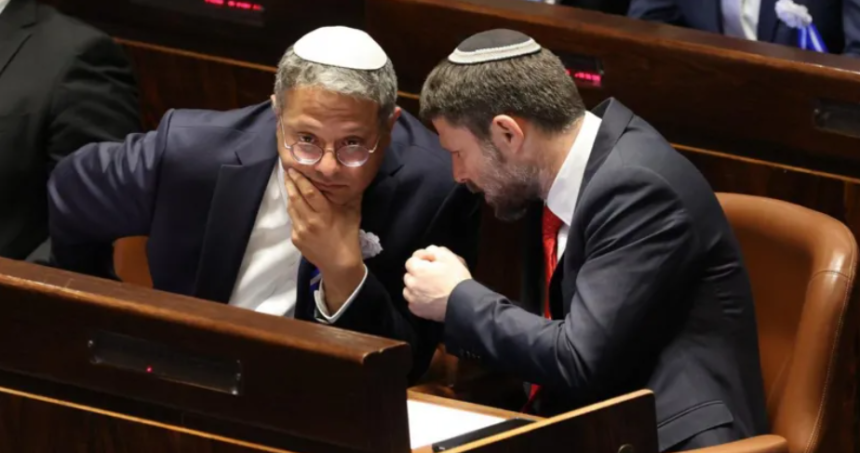Finance Minister Bezalel Smotrich and National Security Minister Itamar Ben-Gvir firmly opposed any deal before Hamas is destroyed. Opposition leader Yair Lapid, however, pledged to support the government if Prime Minister Netanyahu backed the plan.
Netanyahu himself insisted that a permanent truce would not be possible until Hamas’s military and governing capabilities were dismantled and all hostages were released.
President Biden’s three-part proposal starts with a six-week ceasefire, during which the Israel Defense Forces (IDF) would withdraw from populated areas of Gaza.
The plan would eventually lead to the release of all hostages, a permanent “cessation of hostilities,” and a major reconstruction initiative for Gaza.
In a social media post on Saturday, Smotrich stated he informed Netanyahu that he would “not be part of a government that agrees to the proposed outline and ends the war without destroying Hamas and bringing back all the hostages.”
Ben-Gvir echoed this sentiment, declaring that the deal signifies the end of the war and the abandonment of the goal to destroy Hamas, which he deemed a reckless move that would constitute a victory for terrorism and a security threat to Israel.
He vowed to dissolve the government rather than agree to the proposal.
Netanyahu’s right-wing coalition holds a slim majority in parliament, relying on factions such as Ben-Gvir’s Otzma Yehudit (Jewish Power) party with six seats and Smotrich’s Religious Zionism party with seven seats to maintain power.
In contrast, Yair Lapid, a significant opposition figure, quickly offered his support to the embattled prime minister. Lapid’s Yesh Atid (There is a Future) party holds 24 seats. He assured Netanyahu of his party’s backing for a hostage deal if Ben-Gvir and Smotrich leave the government.
This political row unfolded as tens of thousands of demonstrators rallied in Tel Aviv, urging the Israeli government to accept Biden’s proposed plan. Many protesters also demanded Netanyahu’s resignation, with some expressing fears that the prime minister might sabotage the proposal.
A group campaigning for the return of Israeli hostages captured by Hamas has cautioned that agreeing to a deal could endanger the hostages in Gaza. Scuffles erupted between protesters and police in Tel Aviv, with mounted officers and water cannons used to disperse the crowds and some demonstrators reportedly detained.
Protests have become a regular occurrence in Tel Aviv over recent months, with families of hostages and anti-government campaigners rallying for a hostage deal and demanding that Prime Minister Netanyahu step down or call for elections.
Mediators from Egypt, Qatar, and the US issued a joint statement on Saturday, urging both Israel and Hamas to finalize President Biden’s proposed deal.
They emphasized their roles as mediators in ongoing discussions to secure a ceasefire in Gaza and the release of hostages, calling on both parties to finalize the agreement as outlined by President Biden.
UK Prime Minister Rishi Sunak also supported the plan, expressing that his government could provide significantly more aid to Gaza if Hamas accepts the ceasefire.
A senior Hamas politician told the BBC that Hamas would agree to the deal if Israel does. However, Netanyahu’s office reiterated that Israel’s conditions for ending the war remain unchanged: the destruction of Hamas’s military and governing capabilities, the release of all hostages, and ensuring that Gaza no longer poses a threat to Israel.
The statement affirmed that Israel would continue to insist on these conditions before agreeing to a permanent ceasefire.
Meanwhile, fighting continued in Rafah, with reports of Israeli airstrikes on Gaza’s southern city on the Egypt border, along with shelling and gunfire in Gaza City in the north of the territory.
According to the Hamas-run health ministry, more than 36,000 people have been killed in Gaza since the conflict began on October 7, 2023, following an unprecedented attack on Israel by Hamas gunmen, which resulted in about 1,200 deaths and 252 hostages taken to Gaza.



